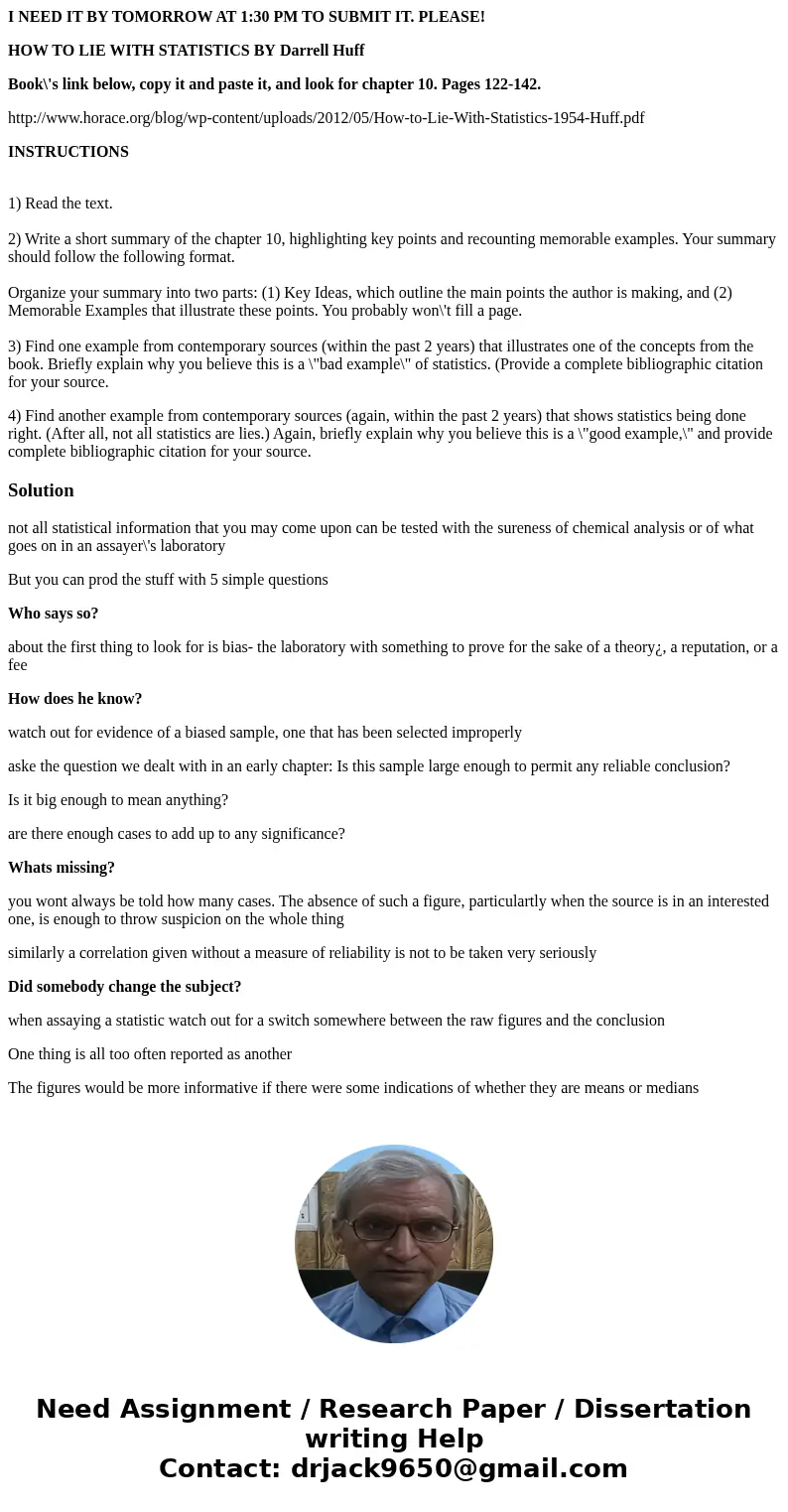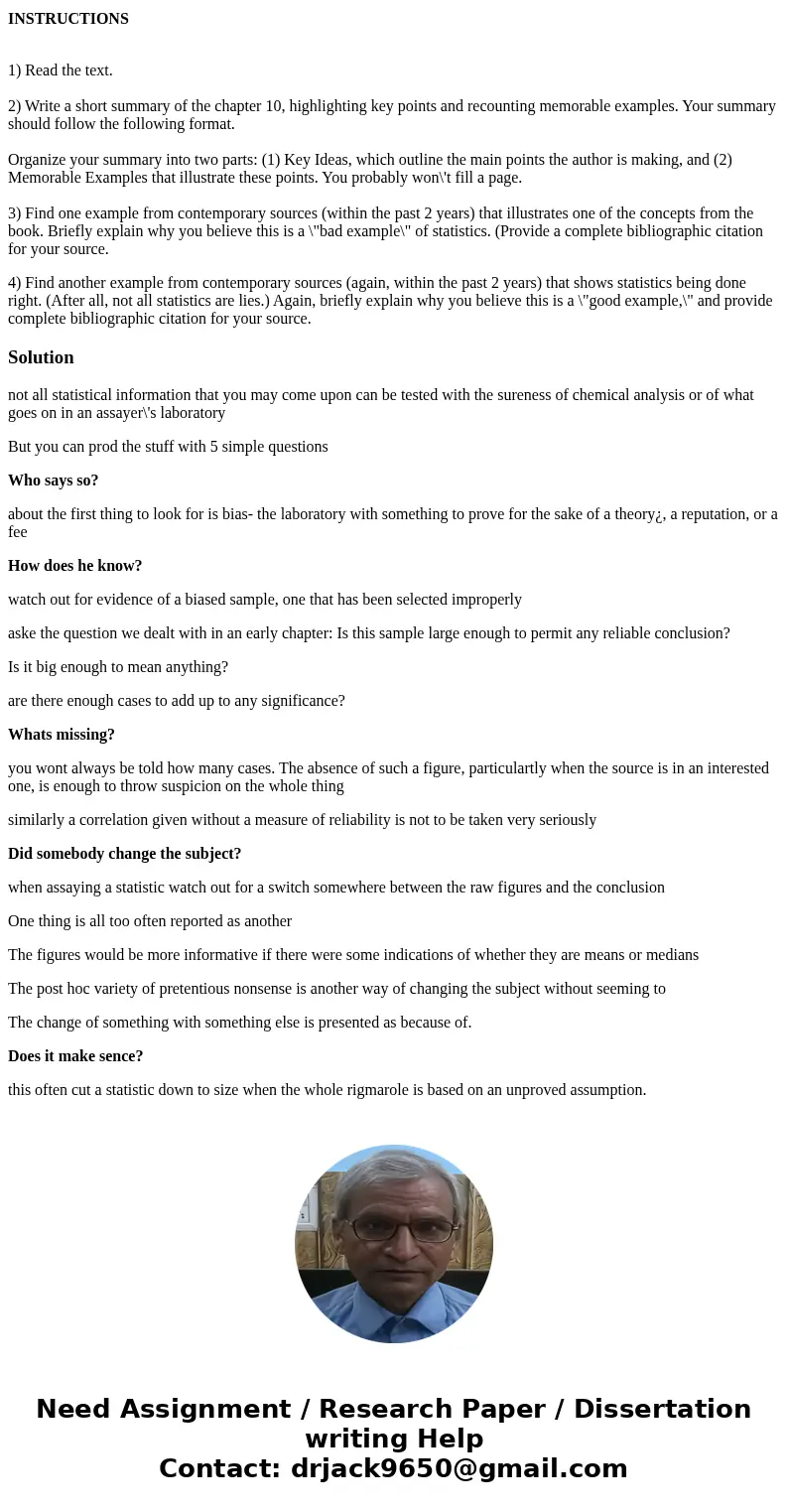I NEED IT BY TOMORROW AT 130 PM TO SUBMIT IT PLEASE HOW TO L
I NEED IT BY TOMORROW AT 1:30 PM TO SUBMIT IT. PLEASE!
HOW TO LIE WITH STATISTICS BY Darrell Huff
Book\'s link below, copy it and paste it, and look for chapter 10. Pages 122-142.
http://www.horace.org/blog/wp-content/uploads/2012/05/How-to-Lie-With-Statistics-1954-Huff.pdf
INSTRUCTIONS
1) Read the text.
2) Write a short summary of the chapter 10, highlighting key points and recounting memorable examples. Your summary should follow the following format.
Organize your summary into two parts: (1) Key Ideas, which outline the main points the author is making, and (2) Memorable Examples that illustrate these points. You probably won\'t fill a page.
3) Find one example from contemporary sources (within the past 2 years) that illustrates one of the concepts from the book. Briefly explain why you believe this is a \"bad example\" of statistics. (Provide a complete bibliographic citation for your source.
4) Find another example from contemporary sources (again, within the past 2 years) that shows statistics being done right. (After all, not all statistics are lies.) Again, briefly explain why you believe this is a \"good example,\" and provide complete bibliographic citation for your source.
Solution
not all statistical information that you may come upon can be tested with the sureness of chemical analysis or of what goes on in an assayer\'s laboratory
But you can prod the stuff with 5 simple questions
Who says so?
about the first thing to look for is bias- the laboratory with something to prove for the sake of a theory¿, a reputation, or a fee
How does he know?
watch out for evidence of a biased sample, one that has been selected improperly
aske the question we dealt with in an early chapter: Is this sample large enough to permit any reliable conclusion?
Is it big enough to mean anything?
are there enough cases to add up to any significance?
Whats missing?
you wont always be told how many cases. The absence of such a figure, particulartly when the source is in an interested one, is enough to throw suspicion on the whole thing
similarly a correlation given without a measure of reliability is not to be taken very seriously
Did somebody change the subject?
when assaying a statistic watch out for a switch somewhere between the raw figures and the conclusion
One thing is all too often reported as another
The figures would be more informative if there were some indications of whether they are means or medians
The post hoc variety of pretentious nonsense is another way of changing the subject without seeming to
The change of something with something else is presented as because of.
Does it make sence?
this often cut a statistic down to size when the whole rigmarole is based on an unproved assumption.


 Homework Sourse
Homework Sourse